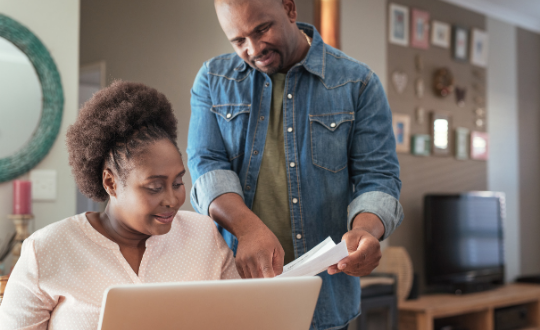Buying a House Post-Lockdown: What You Need to Know in 2024

The process of buying a house is complicated at any point in time but with the effects that COVID-19 and Brexit have had on the property industry, there are even more factors that impact purchasing a property in 2021.
In this article, we analyse how the pandemic has influenced the property market and mortgage applications, as well as highlighting other important information and recent changes to be aware of if you are planning on buying a house post-lockdown.
What will happen to house prices in 2021?
Many property experts predicted a house price crash after the initial mini-boom after the first lockdown in the UK. However, the anticipation of a crash was short-lived, as the government’s stamp duty holiday boosted house sales, with buyers keen to take advantage of the temporary removal of stamp duty tax.
Unlike during the first lockdown, house sales and moves have still been allowed in the second lockdown, so the property market has been able to continue operating, despite working around some restrictions to comply with lockdown rules.
This means that there will not be a repeat of the mini-boom that happened after the first lockdown, when there was a flurry of house sales going through after months of lockdown restrictions preventing sales.
The end of the stamp duty holiday
What is likely to influence the house sales and prices, however, is the stamp duty holiday coming to an end on 31 March 2021.
Since 8 July 2020, home movers buying property priced at up to £500,000 were able to benefit from paying zero stamp duty tax, potentially saving up to £15,000 on the purchase. With this government initiative ending at the end of March, many estate agents are expecting an influx of sales to get pushed through before the deadline, followed by a slower period for sales.
The average house price grew month on month from May to December 2020 but in January 2021, house prices have fallen 0.3% from the previous month, according to Halifax. However, despite this fall, house prices are approximately £13,000 higher on average than they were 12 months earlier. House prices could still see significant fluctuation over the next few months, due to the rush to push sales through before the stamp duty tax holiday ends.
After 31 March 2021, it is widely expected that house price growth will slow down with predictions varying between a fall of 1-5% based on the views from some of the top property experts, including mortgage lenders and estate agents.
Free phone and video consultations are provided in the U.K.
Get StartedUnemployment rates set to rise
As furlough schemes end and unemployment rates increase, as expected in the aftermath of the COVID-19 pandemic, this is also likely to have a big influence on house prices over the next year at least. With higher levels of unemployment, there are more people who are unable to afford their mortgage payments and also lower numbers of people being approved for mortgages.
This could result in more properties being available on the market, which would then reduce the average asking prices due to the lower demand. It is very difficult to predict the full impact of the coronavirus on the economy, especially so early into the vaccination programme roll-out but mortgage lenders have already tightened their lending criteria.
With the UK having been technically in a recession since August 2020, lenders have had to adjust their criteria to limit their lending risk, with a projected increase in job redundancies as companies struggle to operate after the furlough scheme ends.
How can I check my eligibility for a mortgage?
The number of mortgages available on the market has halved since the beginning of the COVID-19 pandemic. This means that it is more difficult to get a good deal but there are still plenty of mortgages available if you meet the criteria.
Lenders will be focusing more on job stability than prior to the pandemic, as well as the other factors such as annual income, existing debt and credit history when deciding whether to lend to you, or how much to lend to you.
If you apply for a mortgage and it gets declined, this can show up on your credit report and affect your future application for a mortgage or other types of loans or credit. Therefore, it is better to check your eligibility before you apply for a mortgage. The eligibility criteria differs from one lender to another but generally, the criteria will include that you have a good credit history and have been a UK resident for at least 3 years.

How to check your eligibility:
Check your credit report
One of the first actions to take is to check your credit report to see if there are any issues that you were not aware of. If you have any recent missed payments, this can result in a declined mortgage application, so improving your credit score should be a priority.
This involves making sure that you are on the electoral roll and that you have made all of your recent payments. Reducing the amount of outstanding debt that you have will also help to improve your credit score and therefore help your chances of having your mortgage application approved.
Online mortgage calculators
You should also be able to get an idea of whether you will be able to get a mortgage approved based on your current salary, by using an online mortgage calculator and answering some questions about your income and outgoings.
Get a soft credit check by a broker
To check your eligibility for a mortgage, you can also ask a broker such as Boon Brokers to conduct a soft credit check, which will run a series of checks without leaving a trace on your credit report. This means it will not affect your future mortgage or credit applications, but you will still find out whether you are eligible for the mortgage deals you are interested in applying for. Getting a Mortgage in Principle will help you to understand how much you are likely to be able to borrow.
See What Our Clients Have To Say
Advice for first time buyers in 2021
If you are buying a house for the first time, the process might be quite daunting and confusing, especially with some of the financial jargon used by mortgage lenders and constantly changing schemes and initiatives. Here are some tips for first time buyers in 2021:
Do not rush into a purchase
If you are trying to take advantage of the stamp duty holiday or are simply keen to get moved quickly, it can be tempting to rush into a mortgage application and house purchase. With the economy so turbulent and job stability lower than usual, it is more important than ever to take your time and research everything about your mortgage and the property you want to buy before you commit to anything.
Get your finances into shape
Clearing any outstanding credit cards, closing unused bank accounts and making sure that you do not miss any payments leading up to your application will improve your credit score and lenders will see you as a more trustworthy borrower. If you are able to, save up a higher deposit. The bigger deposit you have, the more likely you may be to qualify for the better deals with lower interest rates.
Seek expert advice
Understanding the mortgage market is not straightforward and with so many different mortgage deals on the market, it is difficult to find the one that best suits your specific needs and circumstances. By working with a broker, you can access more deals, as well as benefit from their knowledge of the current mortgage market to find the most suitable deal for you.

Find out about government schemes
If you cannot afford a mortgage for the full property price or you do not have a deposit saved up, there are some options available to help first time buyers to get onto the property ladder. Make sure you know what is available to you, such as these government schemes:
Help to Buy Equity Loan Scheme
This scheme is available for first-time buyers who want to buy a new build property. It allows you to borrow 20% of the purchase price with no interest to pay on the 20% for the first five years.
Right to Buy
Tenants who rent their home from the council may qualify under the Right to Buy scheme, which can enable them to purchase the property, usually at a significantly lower price than the property value.
Shared Ownership
Another scheme that helps people to get onto the property ladder is shared ownership, where you own a percentage of the property and rent the rest from the housing association or council. You can later buy a bigger share in the property when you can afford to do so.
Conclusion
Buying your first home should be an exciting time but also a time where you need to proceed with caution and make the right choices regarding which property to buy and what sort of mortgage deal to select. Hopefully this article has helped you to understand some of the key considerations for buying a property in 2021.
Call Boon Brokers for free impartial advice on applying for a mortgage.
Gerard BoonB.A. (Hons), CeMAP, CeRER
Gerard is a co-founder and partner of Boon Brokers. Having studied many areas of financial services at the University of Leeds, and following completion of his CeMAP and CeRER qualifications, Gerard has acquired a vast knowledge of the mortgage, insurance and equity release industry.Related Articles
- The House Buying Process
- Choosing A Mortgage Broker
- How Long Does A Mortgage Application Take?
- What Should I Ask When Buying A House?
- What Is A Mortgage In Principle?
- Should I Buy A House At Auction?
- How Much Deposit Do I Need For A Mortgage
- How To Improve Your Chances Of Getting A Mortgage
- Fixed Rate Mortgage
- Everything You Need To Know About Buy To Let
- What Is A 100% Mortgage
- Should I Use A Broker Or Go Direct?
 Authorised and regulated by the Financial Conduct Authority. No: 973757
Authorised and regulated by the Financial Conduct Authority. No: 973757




